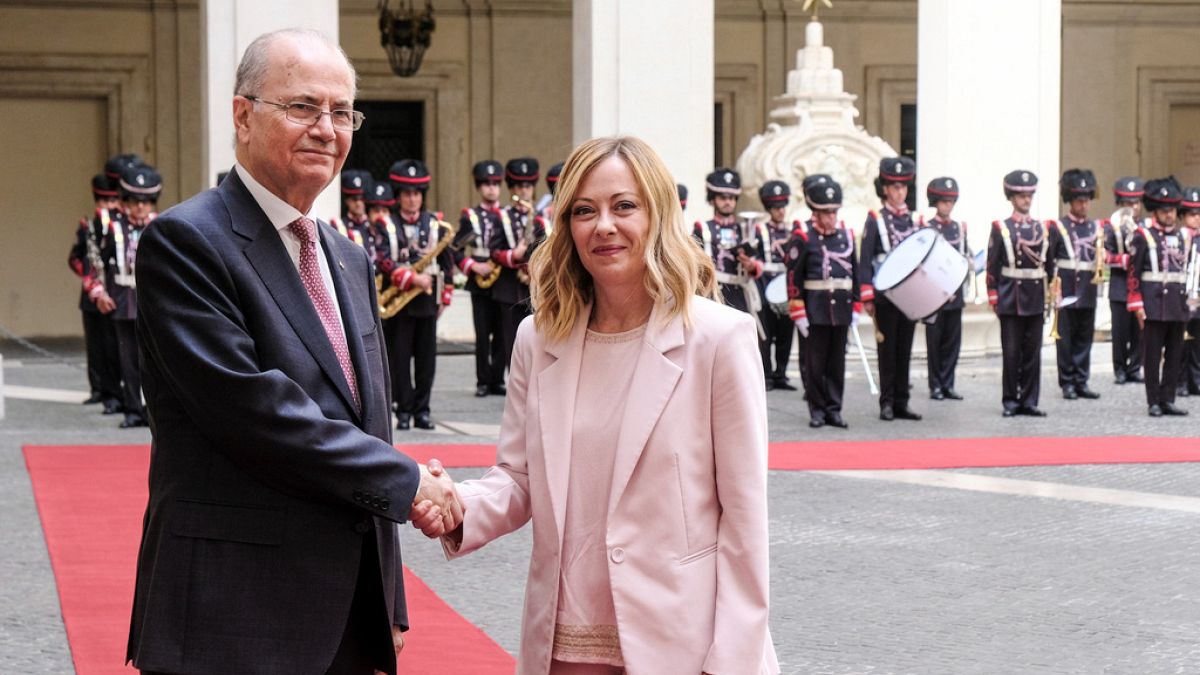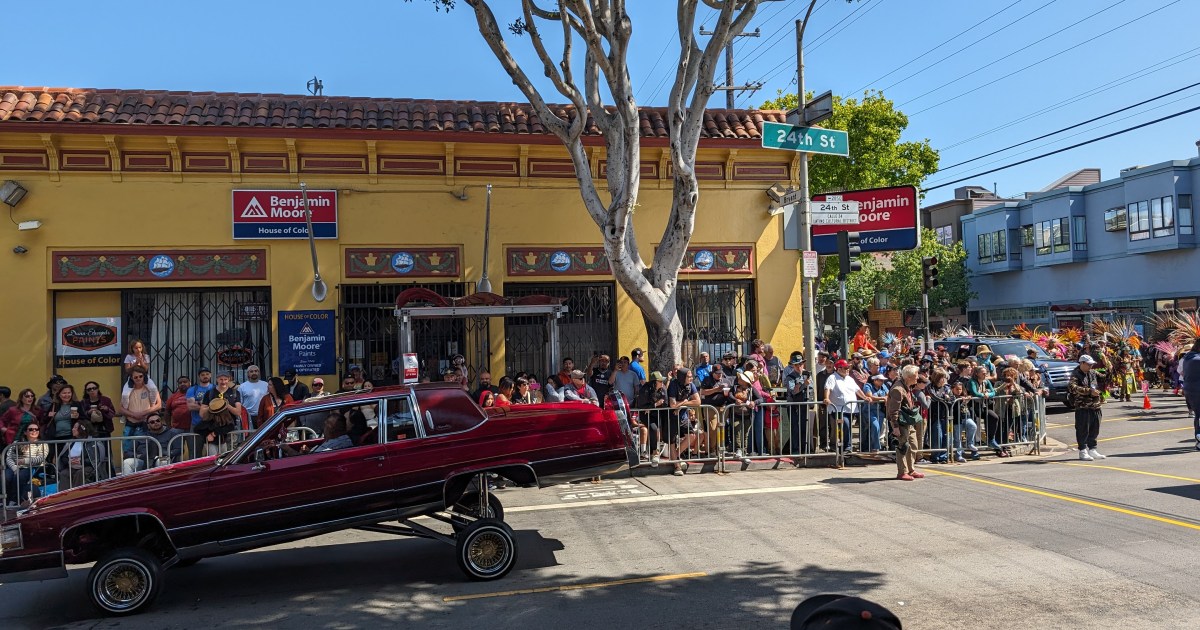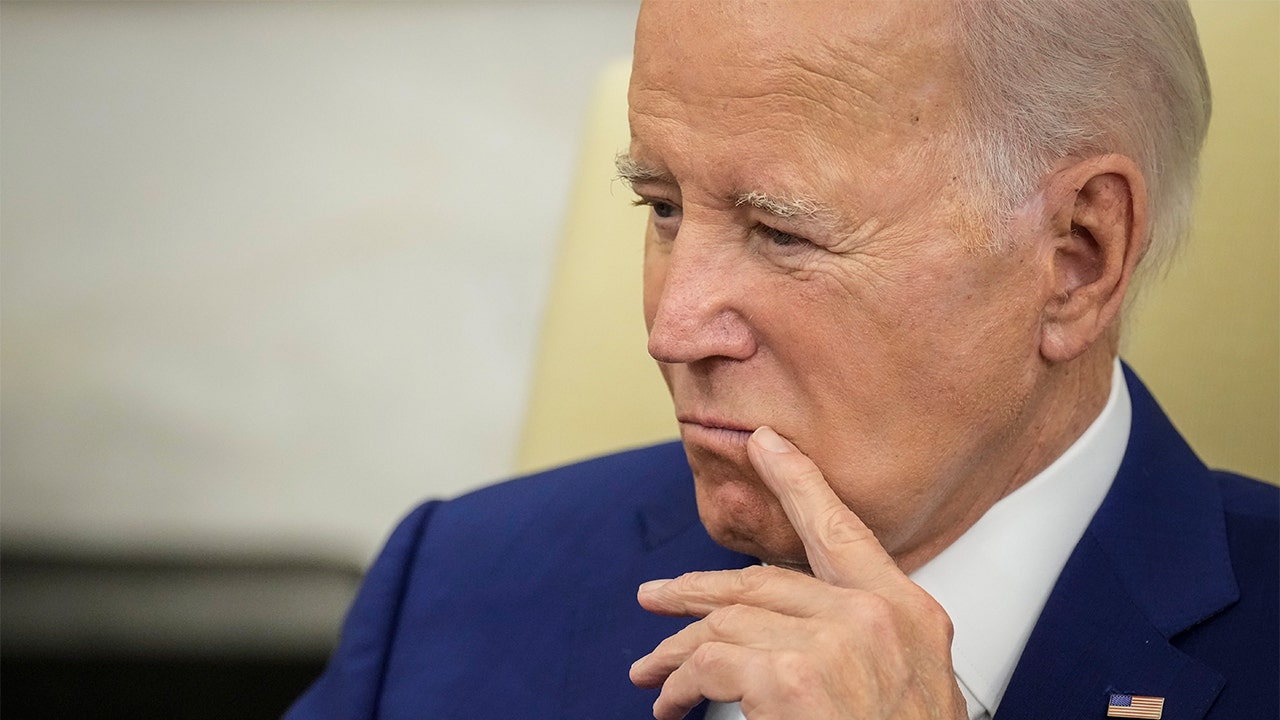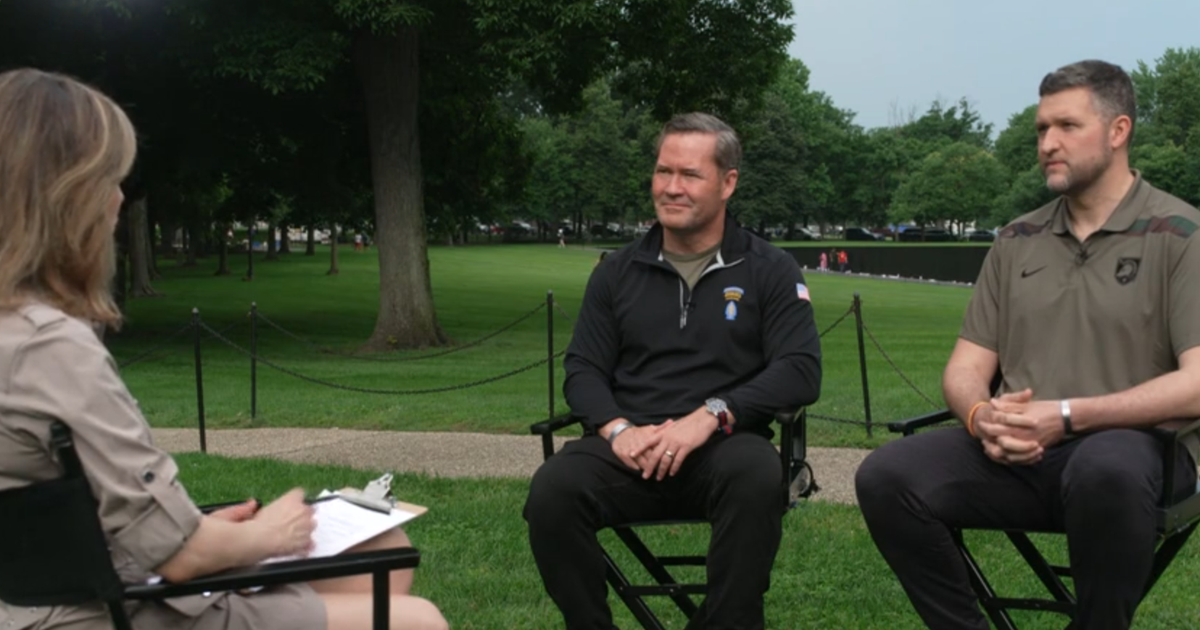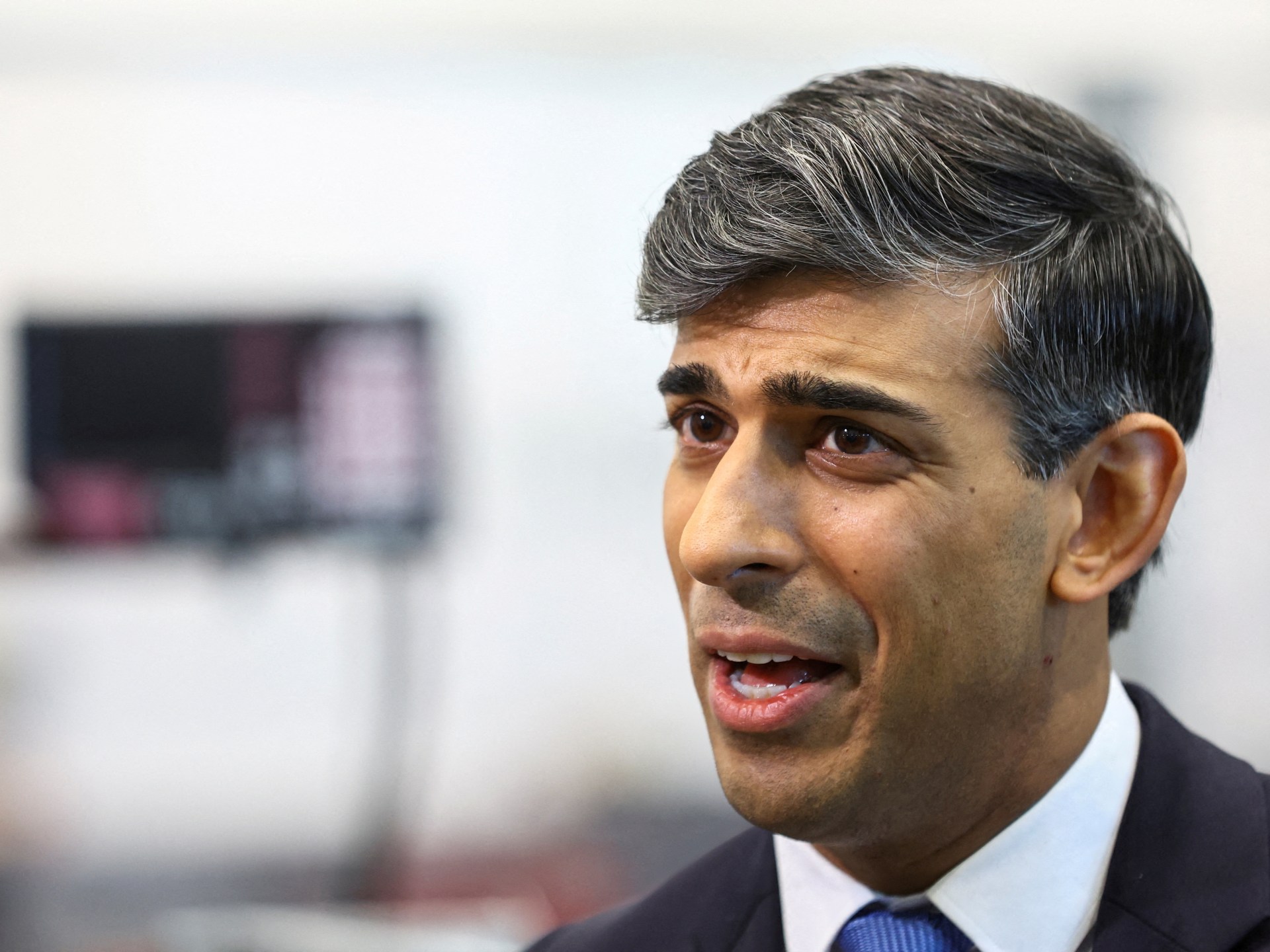World
Irregular meals, benches as beds. As freed hostages return to Israel, details of captivity emerge
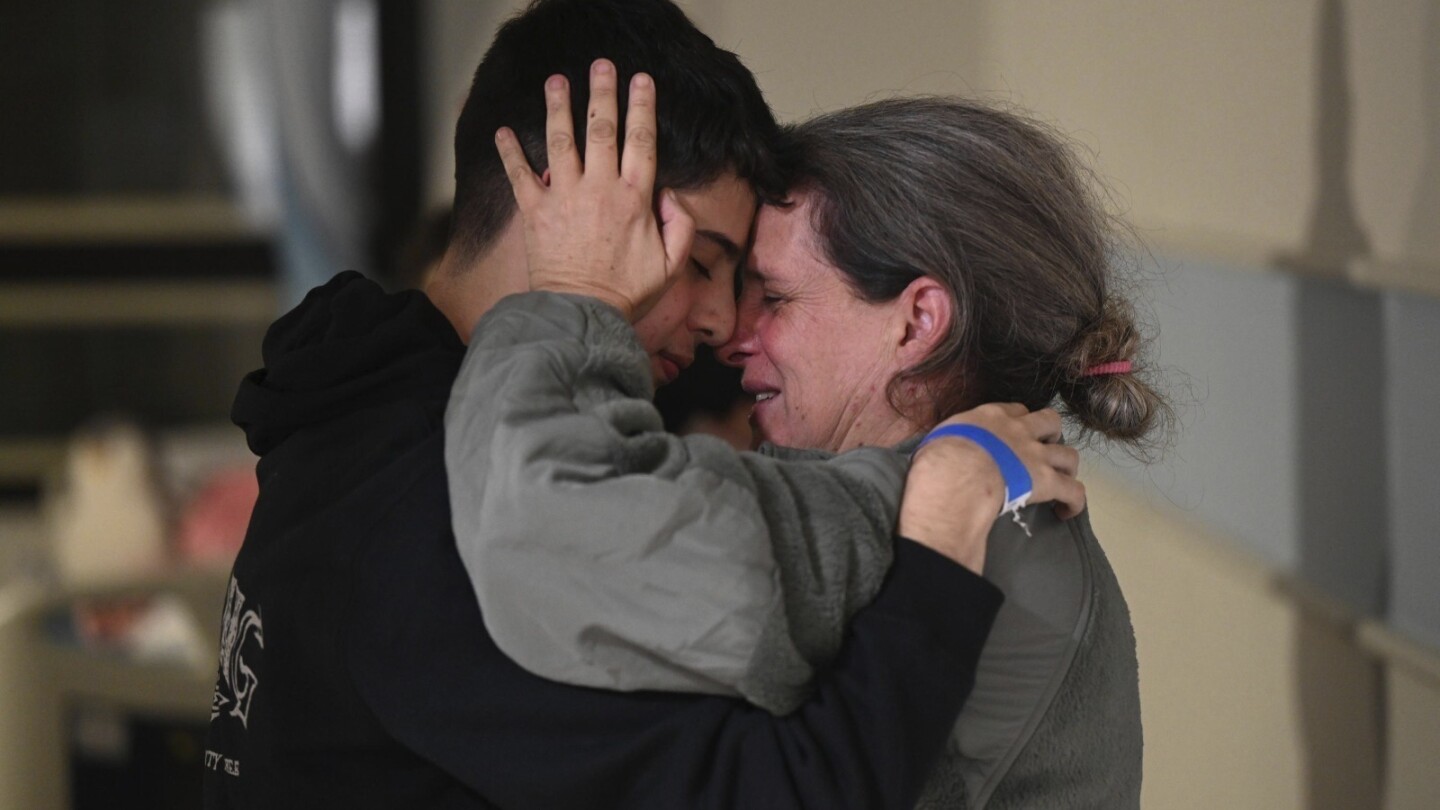
JERUSALEM (AP) — Plastic chairs as beds. Meals of bread and rice. Hours spent waiting for the bathroom. As former hostages return to Israel after seven weeks of Hamas captivity, information about the conditions of their confinement has emerged.
The 58 hostages freed under a cease-fire deal over the past three days have largely stayed out of the public eye, with most still in hospitals.
Nearly two months after Hamas militants dragged them into Gaza during a bloody cross-border attack on Israel that also killed 1,200 people, most freed hostages appear to be in stable physical condition.
Information about the conditions of their captivity has been tightly controlled, but family members of the released hostages have begun to share details about their loved ones’ experiences.
Merav Raviv, whose three relatives were released by Hamas on Friday, said they had been fed irregularly and had eaten mainly rice and bread. She said her cousin and aunt, Keren and Ruth Munder, had each lost around 7 kilograms (15 pounds) in just 50 days.
Raviv said she’d heard from her freed family members that they had slept on rows of chairs pushed together in a room that looked like a reception area. They said they sometimes had to wait hours before going to the bathroom.
Adva Adar, the grandchild of 85-year-old released hostage Yaffa Adar, said her grandmother had also lost weight.
“She counted the days of her captivity,” Adar said. “She came back and she said, ’I know that I’ve been there for 50 days.’”
Adar said that her grandmother was taken captive convinced that her family members were dead, only to emerge to the news that they had survived. Still, her release was bittersweet: She also found out that her house had been ravaged by militants.
“For an 85-year-old woman, usually you have your house where you raised your kids, you have your memories, your photo albums, your clothes,” said Adar. “She has nothing, and in her old age she needs to start over. She mentioned that it is tough for her.”
In the 50 days since the hostages were taken captive, Israel has devastated the Gaza Strip with a ground and air offensive that has killed at least 13,300 Palestinians, according to the Health Ministry in the Hamas-ruled territory. Under the current four-day cease-fire, Hamas has agreed to release a total of 50 Israeli hostages in exchange for Israel releasing 150 Palestinian security prisoners and ramping up aid to the pummeled enclave.
Eighteen foreign nationals, mostly Thais, have also been released.
Eleven more hostages are set to be released Monday on the last day of the cease-fire, leaving close to 180 hostages in the Gaza Strip. Israeli authorities have said that they are willing to extend the truce one day for every 10 hostages released by Hamas.
The fullest image yet of life under Hamas captivity was conjured by 85-year-old Yocheved Lipschitz, a hostage who was freed before the current cease-fire. Upon her release, Lipschitz said she had been held in tunnels which stretched under Gaza “like a spider web.” She said her captors “told us they are people who believe in the Quran and wouldn’t hurt us.”
Lifshitz said captives were treated well and received medical care, including medication. The guards kept conditions clean, she said. Hostages were given one meal a day of cheese, cucumber and pita, she said, adding that her captors ate the same.
The recently freed hostages also appeared to have been held underground. Eyal Nouri, the nephew of Adina Moshe, 72, who was freed on Friday, said his aunt “had to adjust to the sunlight” because she had been in darkness for weeks.
“She was in complete darkness,” said Nouri. “She was walking with her eyes down because she was in a tunnel. She was not used to the daylight. And during her captivity, she was disconnected … from all the outside world.”
Nouri said that Moshe didn’t know that she was going to be released until the last moment.
“Until she saw the Red Cross,” he said. “This is the moment when she realized, okay, these horrifying seven weeks are over.”
She emerged to the news that her husband had been killed by the militants and her son’s family had miraculously survived.
Doctors have warned of the steep psychological toll of captivity. Israel has made counseling and other support available to those who have been released.
But most of the freed hostages have appeared to be in good physical condition, able to walk and speak normally.
But at least two needed more serious medical care. One hostage released Sunday, 84-year-old Alma Abraham, was rushed to Israel’s Soroka Medical Center in the southern city of Beersheba in life-threatening condition.
The hospital’s director said she had a pre-existing condition that had not been treated properly in captivity. Another young female hostage was on crutches in a video Hamas released Saturday. The girl grimaced at her captors as she entered a Red Cross vehicle bringing her out of the besieged enclave.
Yair Rotem, whose 12-year-old niece, Hila Rotem-Shoshani, was released Sunday, said he had to keep reminding her she didn’t need to whisper.
“They always told them to whisper and stay quiet, so I keep telling her now she can raise her voice,” said Rotem. He added that Hila, who will celebrate her 13th birthday on Monday, slept well during her first night back in Israel and has an appetite.
Ohad Munder, Raviv’s nephew, was surrounded by friends soon after his release, as they celebrated his 9th birthday a month late with ice cream and pizza in a hospital ward.
Ohad’s friend, Eitan Vilchik, told Israel’s Channel 13 that his friend was “emotionally strong” and already able to answer their questions about what he ate and what happened to him while he was in captivity. But Ohad’s friends refused to share details, saying they wanted to respect his privacy.
Vilchik said teachers have canceled Munder’s homework requirements but his friends will help him make up the subjects he missed in school.
He said Ohad was still able to solve a Rubik’s cube in less than a minute.
___
Associated Press writer Melanie Lidman contributed reporting from Jerusalem.

World
Macron heads to Germany in first French presidential state visit in 24 years

World
Hamas launches rocket barrage into Israel from Rafah, sounding alarms in Tel Aviv
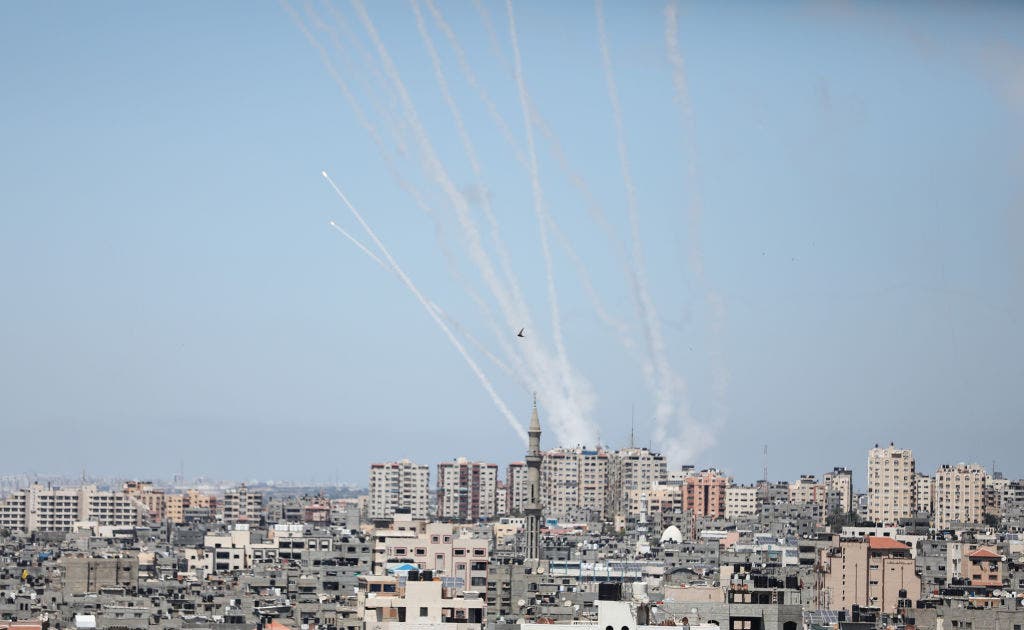
Hamas terrorists launched a barrage of rockets into Israel on Sunday, with roughly a dozen of them being fired from the hotly contested city of Rafah.
Israel’s Iron Dome successfully intercepted the majority of the rockets, with alarms sounding in Tel Aviv and other major cities. The strike comes as Israeli forces are increasing operations in and around Rafah, what Israel says is the final major stronghold for Hamas in Gaza.
Hamas took responsibility for the barrage and argued it was retaliation for “Zionist massacres against civilians.”
Israel has faced growing international pressure to cease its operations in Rafah, which plays host to roughly 1.5 million displaced Gazans. Israel encouraged civilians in the region to leave areas where they conducted military operations against Hamas in an effort to minimize civilian casualties.
GROWING CONTROVERSY OVER BIDEN’S GAZA PIER FUELS CONCERNS OVER COST, SECURITY
Hamas terrorists launched a barrage of rockets into Israel on Thursday, with roughly a dozen of them being fired from the hotly contested city of Rafah. (Getty Images)
Rafah lies on the border with Egypt and had served as a major artery for humanitarian aid. Israel took control of the Gazan side of the border this week, however, and Egypt responded by refusing to allow further aid through.
US MILITARY CONSTRUCTS HULKING METAL PIER AMID BIDEN’S $320 MILLION GAMBLE TO GET AID INTO GAZA
Egypt refuses to reopen its side of the Rafah crossing until control of the Gaza side is handed back to Palestinians. It agreed to temporarily divert traffic through Israel’s Kerem Shalom crossing, Gaza’s main cargo terminal, after a call between President Biden and Egyptian President Abdel-Fattah el-Sissi.
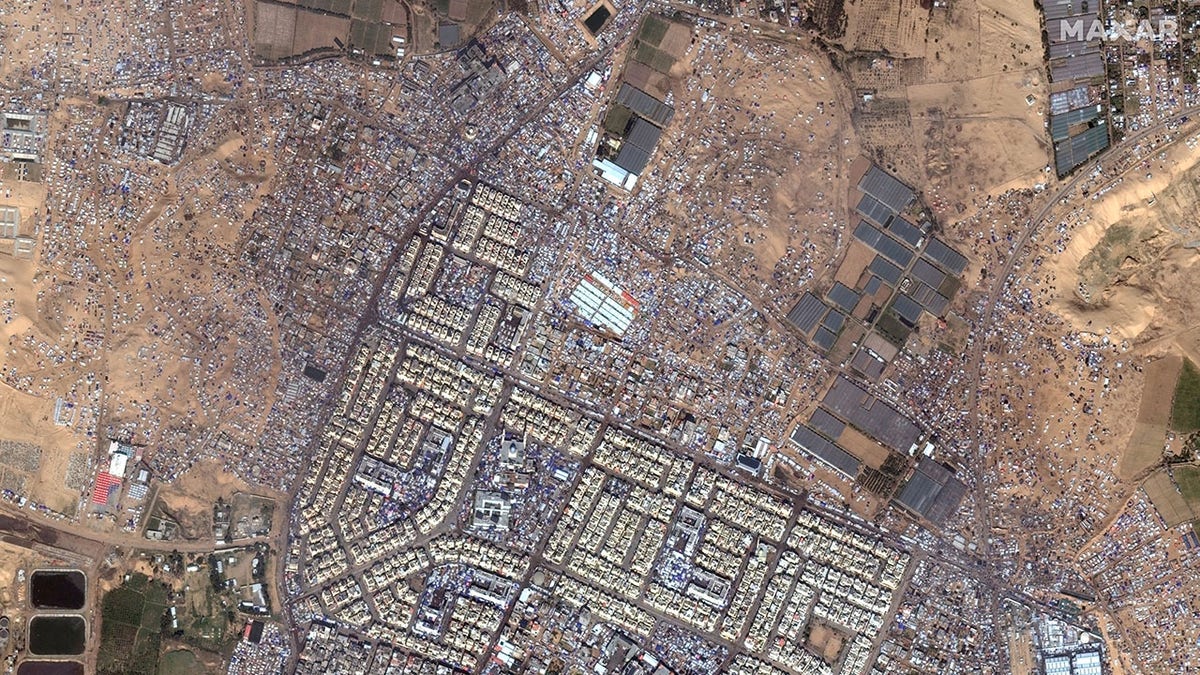
Rafah, pictured here, lies on the border with Egypt and had served as a major artery for humanitarian aid. Israel took control of the Gazan side of the border this week, however, and Egypt responded by refusing to allow further aid through. (Reuters/Maxar Technologies)
Hundreds of aid trucks traveled through Israel’s Kerem Shalom crossing this weekend, but United Nations workers say they have had difficulty accessing the aid due to heavy fighting nearby.
The new aid agreement comes as a “floating pier” created on the Gaza coast by the U.S. suffered damage this weekend. The pier remains mostly operational, but four vessels that had served to stabilize the pier were detached due to rough weather.
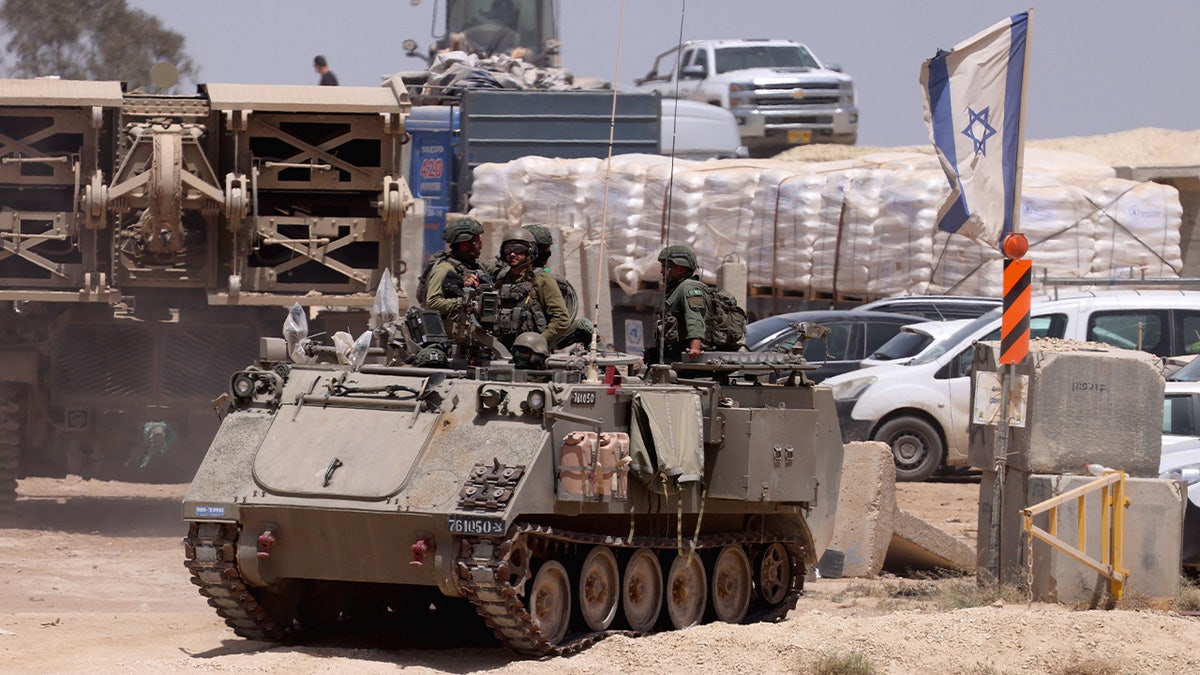
Israeli military vehicles along the border with Gaza on April 24, 2024. (Jack Guez/AFP via Getty Images)
The U.S. spent roughly $320 million constructing the pier, which has been a conduit for aid from the U.S. and other countries. While the pier has been used to transfer roughly 569 metric tons of aid into Gaza, as of last week none of that aid had been delivered to Palestinians, the Pentagon confirmed.
The Associated Press contributed to this report
World
Macron pays Germany a state visit for the first time in 24 years
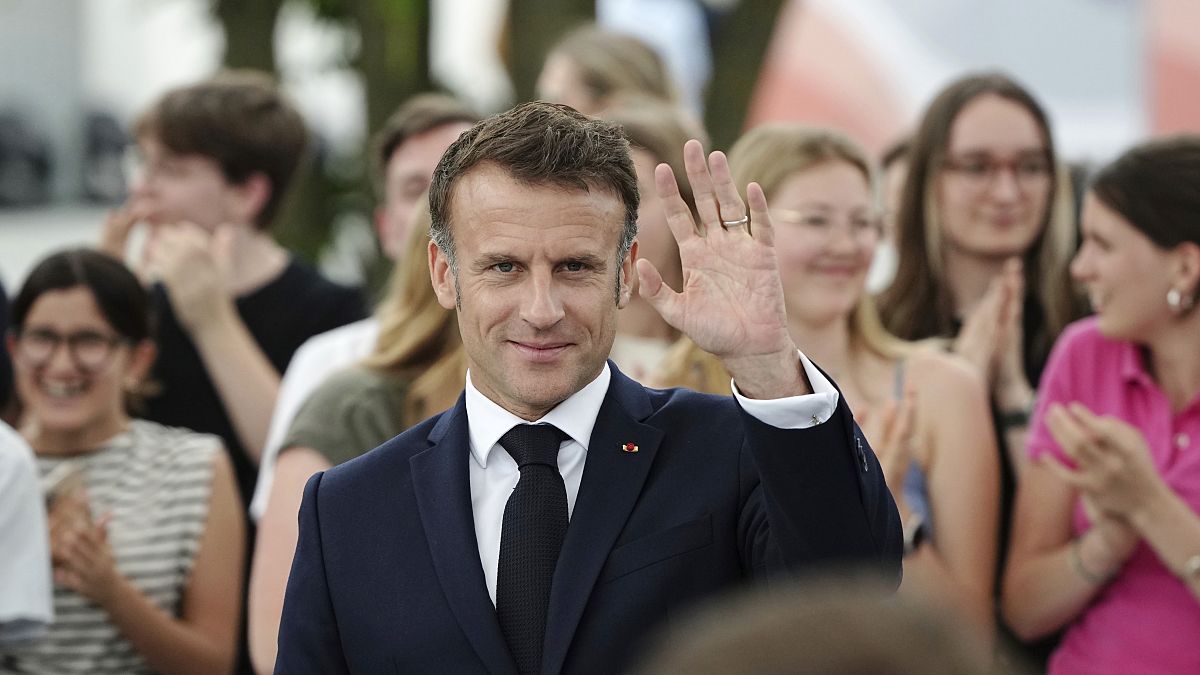
Germany and France, the EU’s largest economies, have long been seen as the driving force of European integration, despite occasional policy differences.
For the first time in 24 years, a French president has paid a state visit to Germany.
President Emmanuel Macron arrived on Sunday for a three-day trip, intended to emphasise the strong ties between the European Union’s leading powers.
Initially set for last July, the visit was postponed due to riots in France following the police killing of a 17-year-old.
While Macron is used to visiting Germany to coordinate EU and foreign policy, this is the first state visit with full ceremonial honours since Jacques Chirac’s visit in 2000.
Macron and his wife, Brigitte, were hosted by Germany’s president, Frank-Walter Steinmeier, as Germany celebrates the 75th anniversary of its post-World War II constitution.
Steinmeier put on a state banquet for Macron at Bellevue Palace in Berlin Sunday evening.
On Monday, the two presidents will travel to Dresden, where Macron will deliver a speech.
They will visit then Muenster in western Germany on Tuesday.
The state visit will conclude with a meeting between Macron, German Chancellor Olaf Scholz, and ministers from both countries at a government guest house outside Berlin.
Germany and France, the EU’s largest economies, have long been seen as the driving force of European integration, despite occasional policy differences.
This was evident earlier this year when the two countries had differing positions on whether Western countries should rule out sending troops to Ukraine.
Macron did not rule out putting boots on the ground in Ukraine, though Scholz quickly distanced himself from these remarks.
Nonetheless, both nations remain strong supporters of Kyiv.
-

 Movie Reviews1 week ago
Movie Reviews1 week agoIs Coppola’s $120M ‘Megalopolis’ ‘bafflingly shallow’ or ‘remarkably sincere’? Critics can’t tell
-

 World1 week ago
World1 week agoTaiwan grapples with divisive history as new president prepares for power
-

 Crypto1 week ago
Crypto1 week agoVoice of Web3 by Coingape : Showcasing India’s Cryptocurrency Potential
-

 Politics1 week ago
Politics1 week agoTrump predicts 'jacked up' Biden at upcoming debates, blasts Bidenomics in battleground speech
-

 News1 week ago
News1 week agoA bloody nose, a last hurrah for friends, and more prom memories you shared with us
-
/cdn.vox-cdn.com/uploads/chorus_asset/file/24038601/acastro_STK109_microsoft_02.jpg)
/cdn.vox-cdn.com/uploads/chorus_asset/file/24038601/acastro_STK109_microsoft_02.jpg) Technology1 week ago
Technology1 week agoMicrosoft’s Surface AI event: news, rumors, and lots of Qualcomm laptops
-

 News1 week ago
News1 week agoVideo: A Student Protester Facing Disciplinary Action Has ‘No Regrets’
-

 World6 days ago
World6 days agoPanic in Bishkek: Why were Pakistani students attacked in Kyrgyzstan?



